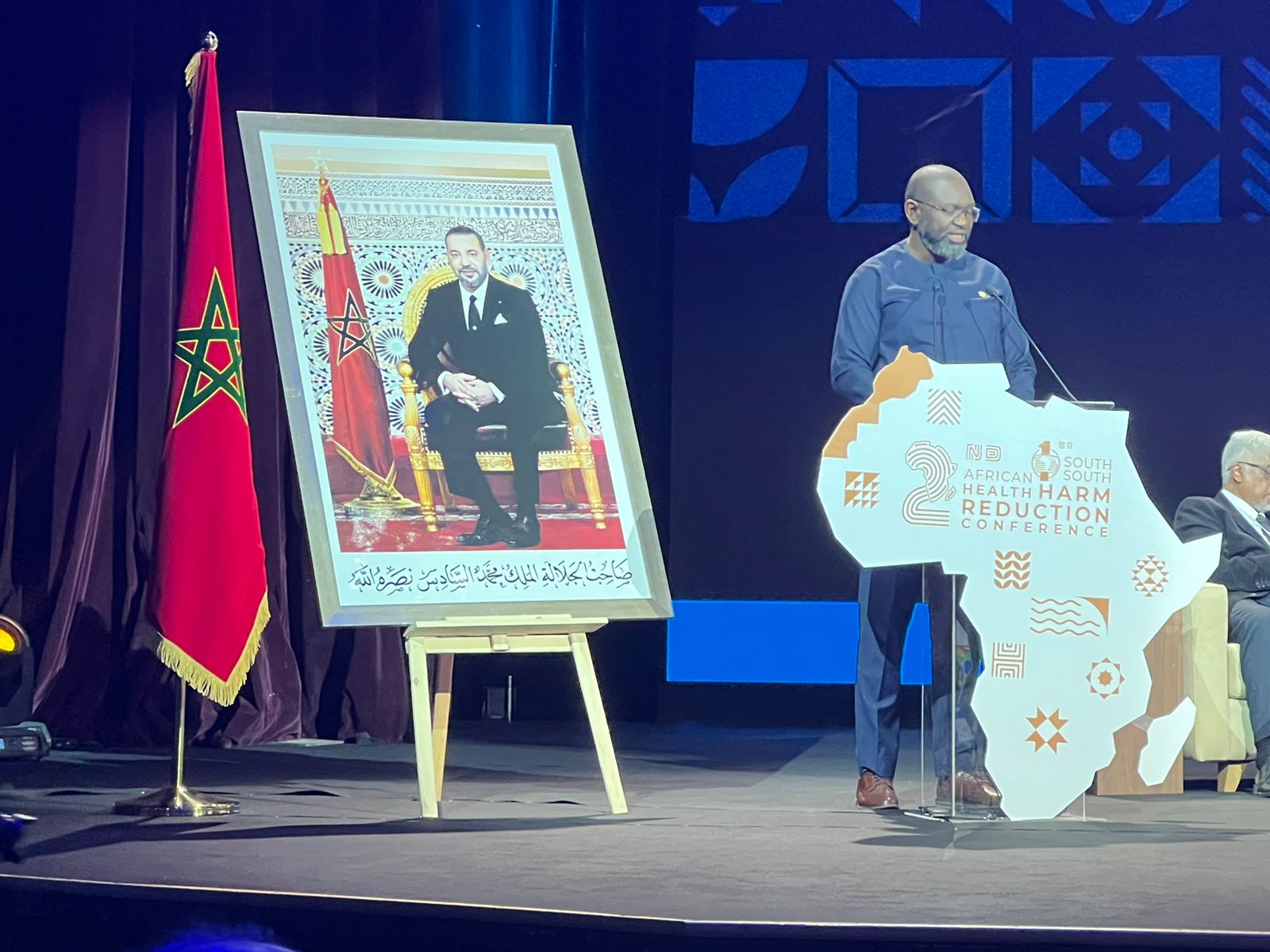|
Getting your Trinity Audio player ready...
|
Dr Ahmed E. Ogwell Ouma, the Deputy Director-General of the Africa Centre for Disease Control and Prevention (Africa CDC) has said health harm reduction is the most viable option for attaining sustainable development on the continent.
He made the remarks yesterday at the second edition of the African and first edition of the South-South Health Harm Reduction Conference running from 27 to 29 September in Marrakech, Morocco, which is running under the theme, “Health in Africa: Water, Environment and Food Security.”
“The theme for this conference is timely, particularly during this time when climate change is increasingly disrupting our ways of life. Reducing the risks of ill health is the best way for Africa to handle the multiple disease threats that our citizens face. Health harm reduction is therefore the most viable option considering the limited resources that we have in Africa.
“Sharing experiences enables us to learn from each other and adapt strategies and solutions that work. This South-South dialogue comes at a crucial time for our resource-constrained countries,” Dr. Ouma said.
The health expert emphasised the importance of indigenous knowledge; documenting and using local evidence; and taking action with visible results in pursuit of attaining harm reduction.
First, he said Africa and many parts of the South are made up of ancient civilizations and that communities have been handling issues of water, food security, and the environment for hundreds of years using local knowledge, experiences, and expertise.
“Our ancient communities did not become extinct, and this means they handled these issues with success. This indigenous and local knowledge is valuable in how we strategize and execute our plans for today and the future. I want to persuade you that one of the missing links in addressing our health harm reduction strategies is the slow uptake and use of our indigenous and local knowledge. This must change.”
Secondly, he said Africa generates a lot of information and data in Africa. This information when well analysed, he said, can be the source of a lot of evidence on what works and what can make a difference in the efforts to protect the continent from disease threats and other social and environmental challenges.
“However, we do not yet document this evidence well, and unfortunately, we also do not consistently use the evidence we generate. We keep quoting evidence from elsewhere in the world and this results in a gap; a gap in what really can work in Africa and the global South. This too must change.
“Thirdly, we have created multiple opportunities and forums to discuss and highlight the problems and challenges that Africa and the rest of the world face in stabilizing the health of our communities. It is time to expand action; positive action that will translate into better health and a better environment for our people. It is time to take these discussions to the communities where the real action must be taken. It is time to step out of these meeting halls into our villages, our forests, and our rivers to make a real difference. It is indeed time to take action that gives us the most visible results.”
Dr. Ouma added that human health is the face of the success or failure of harm reduction strategies.
“The reality is that the solutions for African problems will come from Africans; and the solutions for the South must come from us who live here in the South! To achieve this success, you will find Africa CDC and the African Union to be true local partners and strong advocates for local solutions.”
Speaking on the same occasion, Dr. Olufunke Cofie, the West Africa Regional Representative of the International Water Management Institute (IWMI) said climate change is affecting water resources and food security in Africa and the rest of the world.
“72% of all water withdrawals are used by agriculture. It takes between 2,000 and 5,000 litres of water to produce a person’s daily food. Climate Change is affecting water resources. This leads to the prevalence of physical and economic water scarcity in Africa.
“Between 702 and 828 million people were affected by hunger in 2021. The number has grown by 150 million since the outbreak of Covid 19. Over 2.3 billion people in the world are moderate to severely food insecure while 11.7 % of the global population faces food insecurity at severe levels.”
She encouraged stakeholders to develop water resources using ecological and built infrastructure that is complementary, equitable, and resilient and added that nature-based solutions improve water availability, quality, and disaster risk reduction.
Tied to this, she said it is important to safeguard the quality of water systems. Dr. Cofie encouraged the deployment of good agricultural production practices.
This can be achieved through climate-resilient agriculture including drought-tolerant, nutrition-enhanced varieties; farm for health Innovation and approaches; as well as gender and social inclusion farming, among other strategies.






